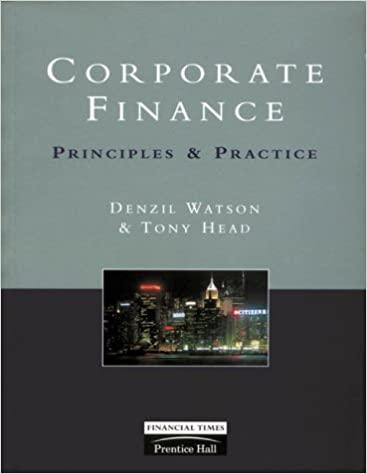Question
1) You can depreciate building owned by your business. Can you depreciate your own resident? Why or why not? (2) In theory, depreciation expense accounting
1) You can depreciate building owned by your business. Can you depreciate your own resident? Why or why not?
(2) In theory, depreciation expense accounting is straightforward enough: You divide the cost of a fixed asset among the number of years that the business expects to use the asset. In other words, instead of having a huge lump-sum expense in the year that you make the purchase, you charge a fraction of the cost to expense for each year of the asset's lifetime. Using this method is much easier on your bottom line in the year of purchase, of course.
Theories are rarely as simple in real life as they are on paper, and this one is no exception. Do you divide the cost evenly across the asset's lifetime, or do you charge more to certain years than others? Furthermore, when it eventually comes time to dispose of fixed assets, the assets may have some disposable, or salvage, value. Only cost minus the salvage value should be depreciated, right? Or, should salvage value estimates be ignored and the total cost of a fixed asset be depreciated? And how do you estimate how long an asset will last in the first place? Do you consult an accountant psychic hot line? What would you do if you are the accountant, and how would you advise your client in depreciation?
Step by Step Solution
There are 3 Steps involved in it
Step: 1

Get Instant Access to Expert-Tailored Solutions
See step-by-step solutions with expert insights and AI powered tools for academic success
Step: 2

Step: 3

Ace Your Homework with AI
Get the answers you need in no time with our AI-driven, step-by-step assistance
Get Started


